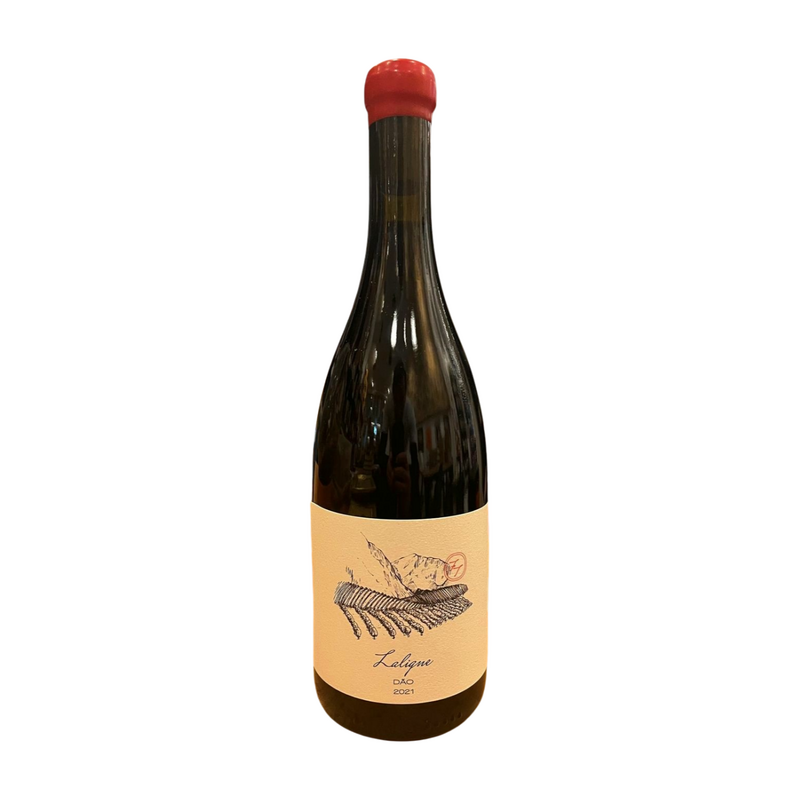World Wild Wines
World Wild Wines, a collaborative venture spearheaded by Carlos Raposo and Frédérick Blais, embodies a profound respect for the Dão region's viticultural heritage, translating into expressive and authentic wines. The project emerged from a shared vision to showcase the unique terroir of this Portuguese appellation, prioritizing the preservation of its old vines and the promotion of a biodiverse vineyard ecosystem. Their approach is deeply rooted in a meticulous understanding of the Dão's varied microclimates and soil compositions, allowing for creating wines that truly reflect the region's inherent character. This focus on regionality is a hallmark of their winemaking philosophy, evident in their careful selection of vineyard sites and their commitment to showcasing the nuances of each parcel.
Viticulture at World Wild Wines is characterized by a philosophy of minimal intervention, emphasizing sustainable practices that nurture the health of the vineyard ecosystem. This translates into meticulous hand-harvesting, careful grape selection, and a judicious use of modern technology to preserve the fruit's integrity. The winemakers demonstrate a strong dedication to safeguarding the old vineyards they cultivate, recognizing their irreplaceable role in imparting complexity and depth to their wines. Their commitment extends to fostering biodiversity within the vineyards, promoting a harmonious balance between the vines and their surrounding environment. This dedication to ecological balance highlights their long-term vision for the sustainability of the Dão region.
Carlos and Frédérick adopt a nuanced winemaking approach in the cellar, blending traditional and contemporary techniques to craft wines of exceptional elegance and complexity. Their methodology incorporates a range of aging vessels, including concrete, stainless steel, and seasoned oak barrels, allowing them to fine-tune each wine's texture and aromatic profile. The emphasis is on allowing the inherent qualities of the grapes to shine through, resulting in wines that exhibit a distinct sense of place. This philosophy is evident in their careful handling of the fruit, from gentle pressing to patient aging, ensuring that the final product reflects the unique characteristics of the Dão terroir.
The partnership of Carlos Raposo and Frédérick Blais is defined by a shared passion for crafting wines that are both expressive and sustainable. Their dedication to preserving the Dão's viticultural heritage, coupled with their innovative winemaking practices, has resulted in a portfolio of wines that are garnering recognition for their quality and authenticity. Their commitment to sustainable viticulture and minimal intervention in the cellar underscores their respect for the land and their desire to create wines that truly reflect the unique character of the Dão region. This dedication is the driving force behind World Wild Wines, ensuring the legacy of the terroir is preserved and showcased for years to come.
Portuguese wine
Frequently asked questions
The entire country of Portugal is divided into 14 different wine regions, including in the Azores and Madeira islands. Some of Portugal's most famous winemaking regions include the Douro Valley (known for Port) and Vinho Verde (known for its light, refreshing white wines).
Portugal is becoming more well known for its orange wines, talha wines (traditionally made in clay pots), and palhete (made by blending red and white grapes together).
Portugal is best known for its fortified wine, called Port wine. It is produced in the Douro Valley, which is a UNESCO World Heritage Site and recognized as the world's first demarcated wine region, established in 1756.
Vinho Verde in northern Portugal is another popular winemaking region characterized by rolling hills and lush landscapes. It's known around the world for low-alcohol, refreshing white wines, although the region traditionally focused more on red wines made with the fruit-forward vinhão grape.
The Portuguese island of Madeira, with its subtropical climate, is renowned for its fortified wines. Winemaking here dates back to the 15th century, when Portuguese
explorers brought grape varieties from around the world.
Our sustainable, natural wine shop is located in the Marquês neighborhood in Porto, Portugal. We also ship to countries around the world, including within Europe, the United States, Canada, Australia, China, and more. Review our Shipping Policy to learn more.
In recent years, there has been a notable shift toward sustainable viticulture and the production of natural wine in Portugal. Many winemakers are implementing organic farming practices and embracing biodiversity to maintain soil health and reduce chemical inputs. This commitment to sustainability is not only beneficial for the environment but also enhances the quality of the wines, allowing the unique characteristics of the terroir to shine through. For example, some winemakers are now utilizing ancient terracotta amphorae for fermentation (called talha in Portuguese). This method preserves regional cultural heritage, enhances the wine's character, and aligns with sustainable practices by reducing reliance on modern materials.

